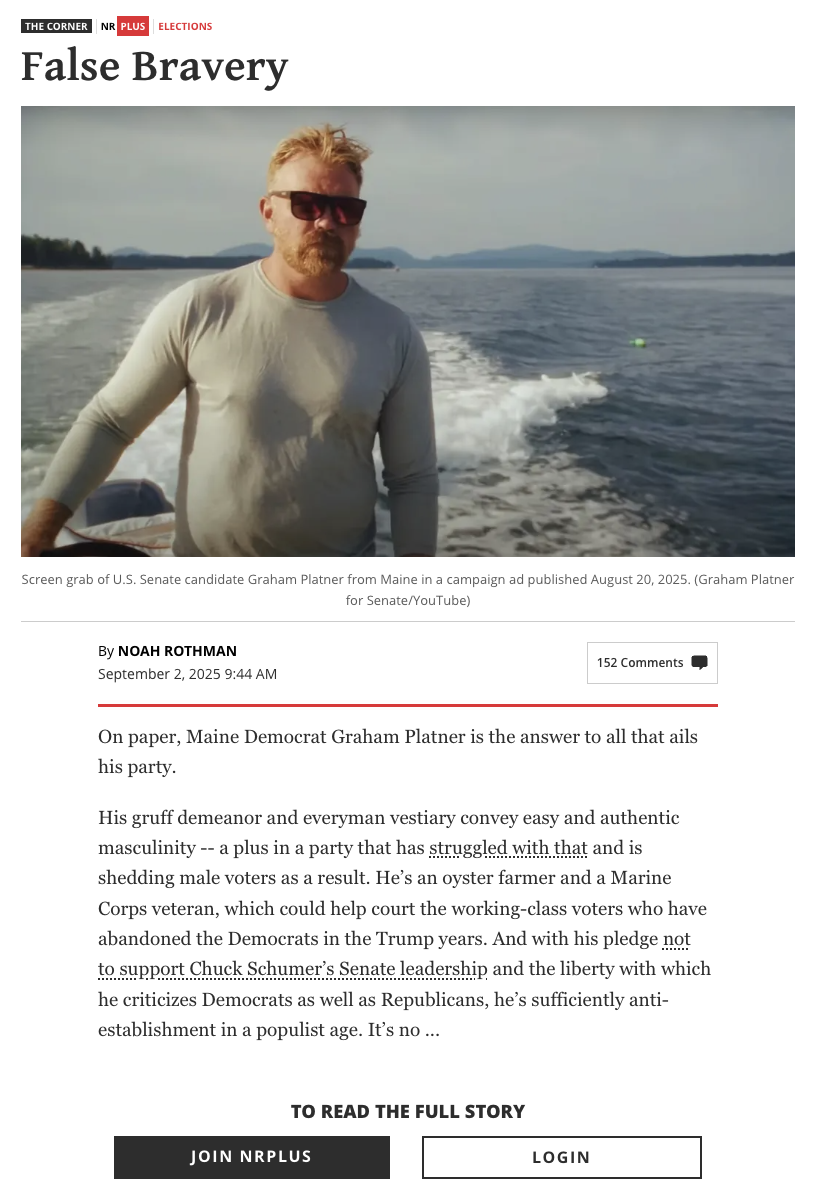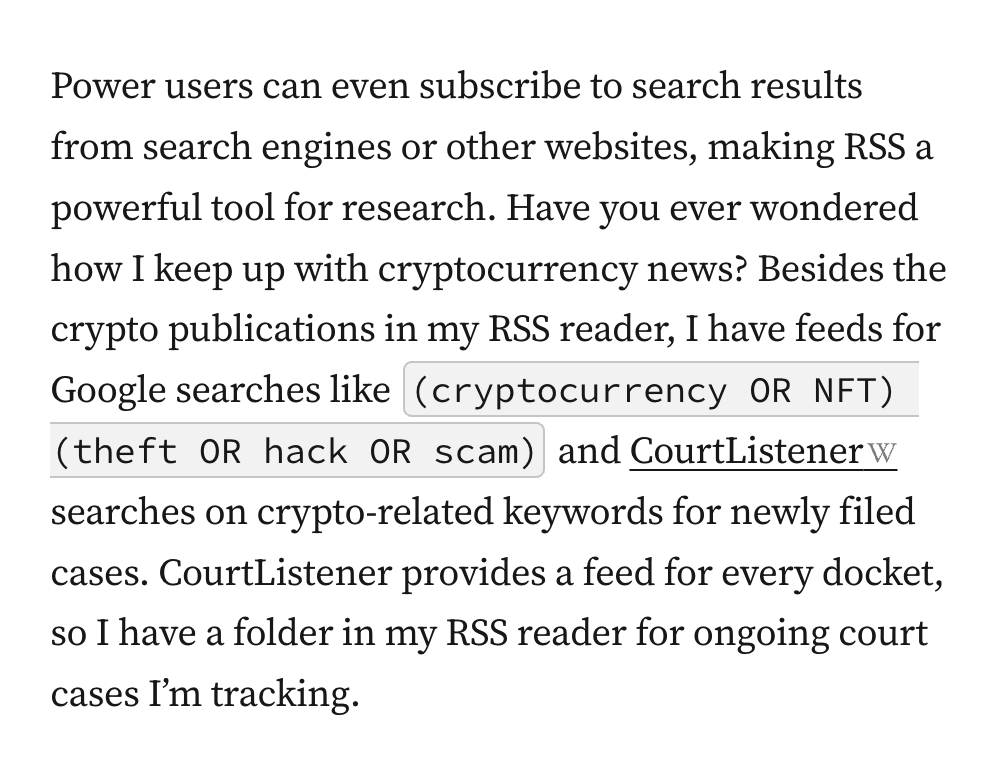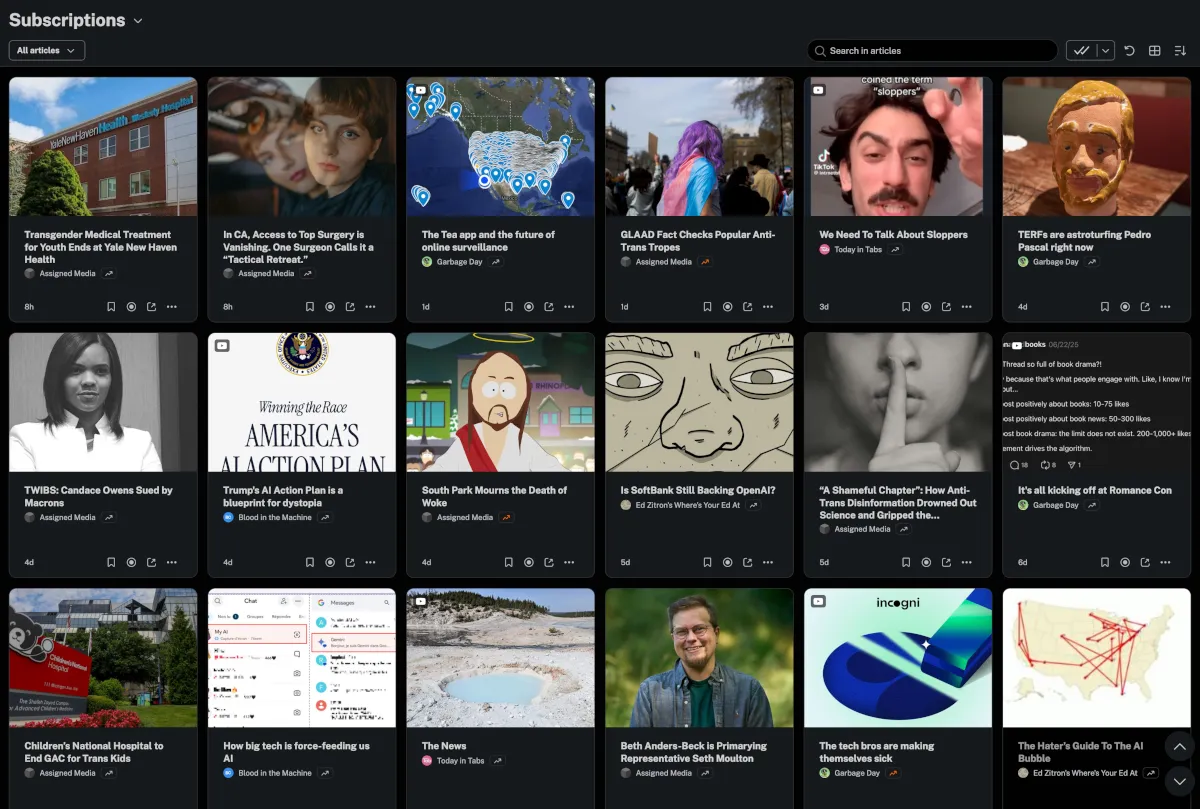Even according to the Times’ own reporting, readers do not seem to like AI romance novels. One of the two AI critical sources quoted in the article said that she would never knowingly pick up a book written by AI. Another, an author whose work had been scraped by Anthropic to train their AI model, pointed out that flooding the zone with slop makes it much harder for real human authors to be discovered by readers. What I found most curious was Coral Hart’s reasoning for using a pseudonym in the article. Coral Hart is a retired pen name and the source would not give any of her current pen names “because she still uses her real name for some publishing and coaching projects. She fears that revealing her A.I. use would damage her business for that work.” Huh! That’s weird!
Activity tagged "journalism"
They were journalists at major news outlets in New York and D.C. before taking big pay cuts to run the Midcoast Villager, a paper covering a rocky, coastal part of Maine.
How a British-born hobbyist blogger became one of Big Tech's punchiest critics
Something I wish journalists understood better: anyone can nominate an article for deletion on Wikipedia, which kicks off a week-long discussion — even if the article is perfectly acceptable and will ultimately be kept. This does not mean "Wikipedia is trying to delete X!!"
Half the time I see news articles about "Wikipedia is trying to delete X!", I go look at the discussion and it's
since i was writing for a general audience i only tucked in a short paragraph about using RSS as a journalist or researcher, but i genuinely have no idea how anyone functions without it.
sometimes in an interview someone will ask me for my “secret” for staying on top of crypto news, and the secret is literally just RSS
Curate your own newspaper with RSS
The Verge and Wired lean in to newsletters
Interesting to see two major news outlets — The Verge and Wired — both announce major newsletter strategies nearly simultaneously. I suspect both are motivated by the hope that email will be "stickier" than the (declining) direct traffic to news websites.
"A New Era for WIRED—That Starts With You"
The Verge cites the desire to "deepen[] its direct relationship with readers". Wired writes "The platforms on which outlets like WIRED used to connect with readers, listeners, and viewers are failing in real time", saying they wish to "connect our humans to all of you humans".
And with the internet eating major broadcasters’ lunch, it’s very likely that the Ellison family paid billions of dollars for a network whose fortunes are headed to the toilet, and whose viewers are headed elsewhere. They have the potential to create a right wing propaganda bullhorn that rivals Fox News; but it’s just as likely their disastrous management turns the network of Walter Cronkite into a sad, historical footnote.
The extremism beat has gone mainstream—but in local markets, it's still intensely personal.



